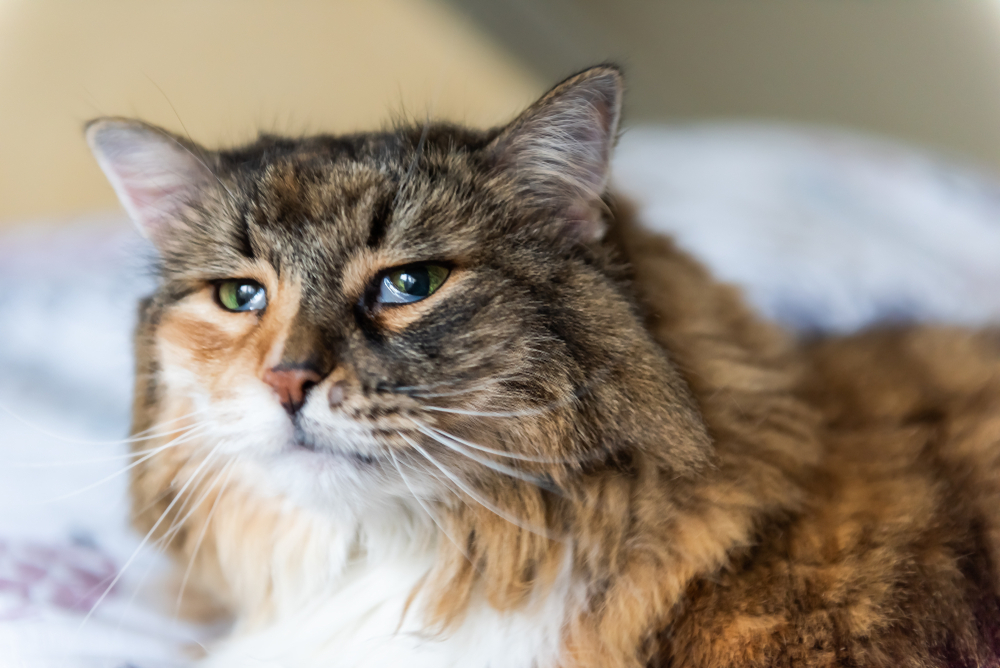
It’s so silly for humans to think we’re the only ones with emotions. Not only can our cats experience a broad spectrum of emotions that humans share, but they also live entirely complicated lives that we don’t understand.
When it comes to a cat losing another cat, is there a grief process? Do they miss their feline counterpart long after their worldly departure? In truth, it’s likely that cats will miss and maybe even mourn the loss of another cat, but it’s hard to say for sure and for how long they mourn. Let’s find out more in this article.
Cats Feel Many Emotions
Cats can have a broad spectrum of emotions. It’s very difficult to understand because we are humans, and they are cats. We can’t fully understand the actual lived experience of another species. The truth is, no matter how many professionals exist out there, we only know what we can observe.
So many things go on under the surface, and we don’t have the capability to verify the process, intelligence, and consciousness of other life. Any mammal that rears its young has the instinct to protect and look after their offspring.
Because of this natural and born desire, your cat is able to keep a litter of their kittens alive. However, it goes far beyond having kittens to look after. Cats also get connected to other felines.
While they are more solitary creatures, they still love to play, snuggle, cuddle, and groom other kitties. So, it is only understandable to assume that if a cat experiences a loss of connection, they mourn. But it’s hard to say exactly how long they mourn for.
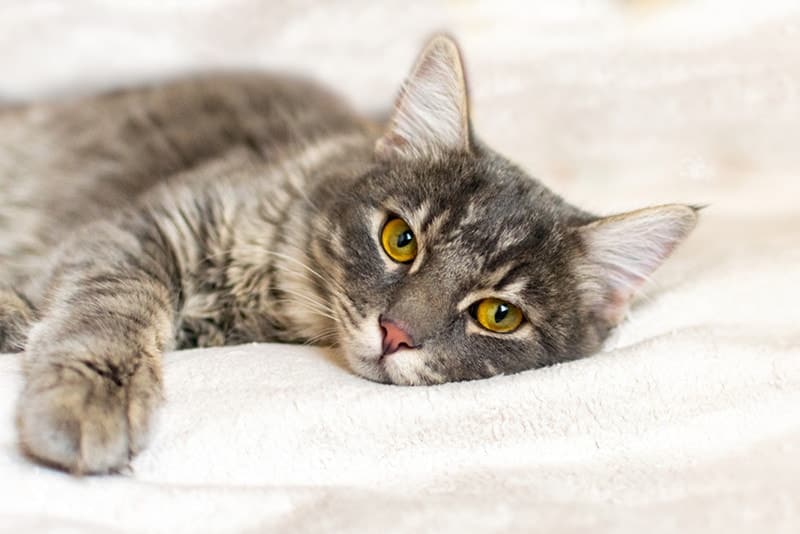
How do Cats Show Grieving?
Many animals show similar behaviors when it comes to showing sadness. Like humans, cats can really get the blues when another feline or their human counterpart leaves. Other cats remain seemingly unaffected by this reality.
The researchers aren’t quite convinced that cats really have the full spectrum of grieving the way other mammals might. However, they can definitely agree that there is some level of true recognition that a cat is mourning in some cases and to a degree—but it depends on the cat and situation.
You might notice a few of these signs if your cat is mourning.
Decreased Appetite
If your cat is really missing someone, they might not want to eat like they did. Their heart is already sad, so their belly feels full too. This is a pretty classic sign with humans and our pets alike.
So, if your cat experiences loss and seems to be avoiding the food bowl, it can be expected to some extent. In fact, over half of cats that experienced mourning had a loss of appetite.
Lack of Energy
If your cat is experiencing some level of grief, they might have a serious reduction in activity. They might not play like they did, they might nap more, or they might seem uninterested in things that once brought them joy.
If you notice, lack of energy is also something that we experience when we lose someone we love.
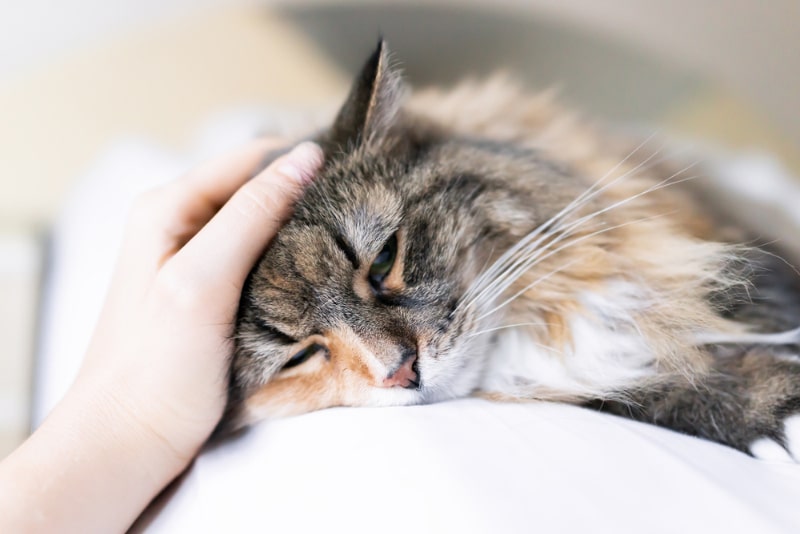
Searching
If a human owner dies, the cat might search for them for days, and sometimes even weeks. They form very intense connections with their human counterparts, though every relationship will have its own degree of closeness.
If they were very attached and dependent on a person, they might very well not rest until their nervous system readjusts to the loss.
Vocalization
If your cat is searching through the house or otherwise not understanding what’s going on, they might increase in vocalization. This might display how uncomfortable or confused they are, and it might get increasingly worse at night.
Hiding
Some cats simply might want to be left alone to deal with the loss. They don’t really want to be around anyone else and they don’t have the desire to be a part of what’s going on around the home.
The 5 Ways to Help a Grieving Cat
So now you know that cats can grieve, but what exactly do you do for them? If you have a cat that’s experiencing loss, how you can help depends very much on the particular cat in question. But here are some ideas.
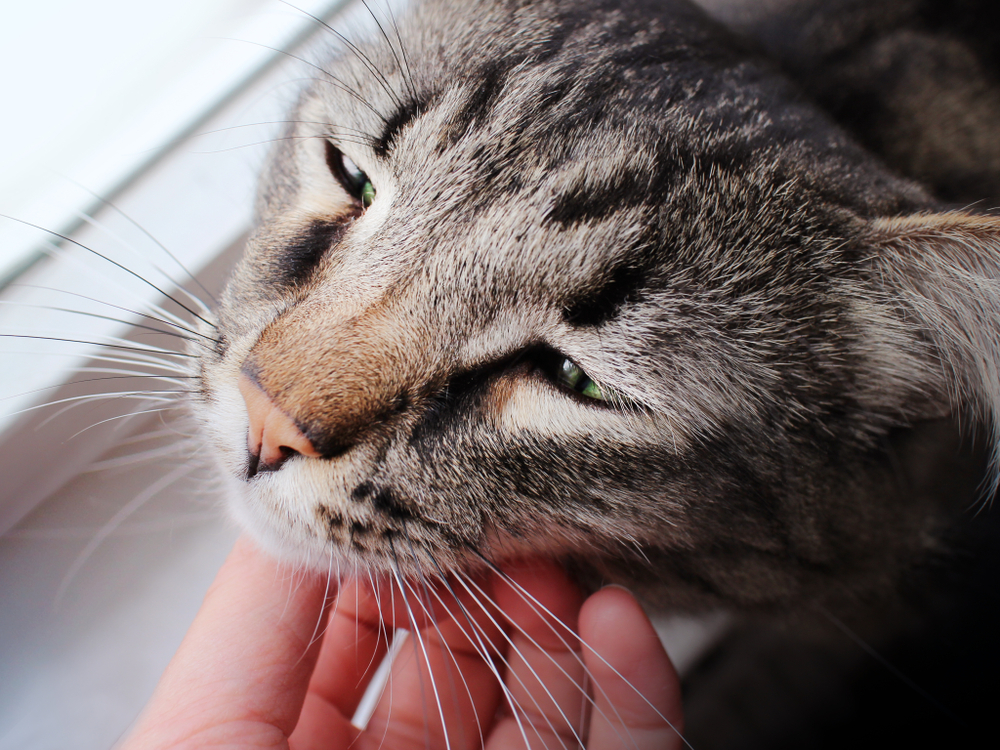
1. Spend Quality Time
It’s time to spend more time together. Some cats might really be missing that connection and will thrive by having that extra affection for the time being.
2. Give Them Space
Some cats really might not want the attention. Instead, they just want to be left to their own devices. If they don’t really seem like they want company, leave them alone and let them decide when they’re ready for affection.
3. Offer Distractions
Have you gotten your cat a new toy lately? If not, it might be a fun idea to distract them from the problem. While it might not be a fix-all, it can certainly help.
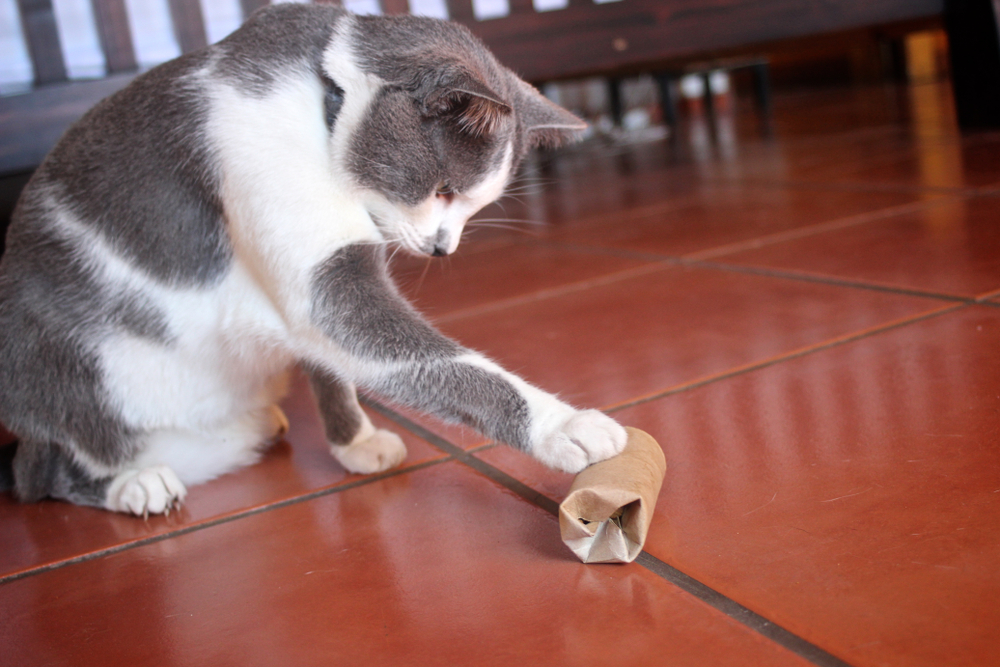
4. Consider a Companion
If your cat lost another kitty companion, you might consider getting another cat after a little while. It isn’t something that you should turn around and do right away, as your cat needs time to adjust.
If you do it too soon, it actually might make the grieving process worse and even cause aggression or dislike towards the new family member.
5. Call Your Vet
If you feel like it’s been several weeks since the loss and your cat’s mood isn’t improving, it might be time to get them to the vet. While some signs of grief can be completely normal and expected, if it starts to affect your cat’s health in a negative way, there could be something else going on.
You know your cat best. If you feel like they need to be seen, even if it’s only been a few days and especially if your cat isn’t eating, get them to the vet. The vet might prescribe them medications for depression or check for other underlying health conditions that might not be so obvious.
Frequently Asked Questions (FAQ)
Do Cats Grieve Other Cats?
Cats might grieve other cats, but it does take a particular connection. Our felines tend to be pretty independent creatures, so it takes a really good friend to leave an impression.
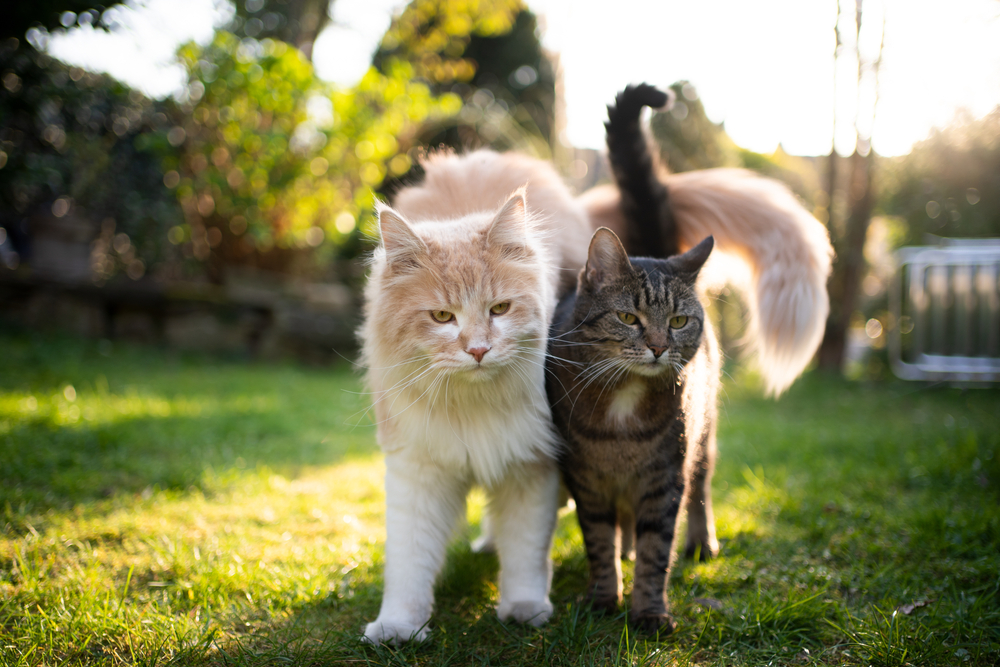
Do Mother Cats Mourn Kittens?
Mother cats show strong bonds and possession over their kittens. So, when a mother cat experiences loss, it is very normal for them to feel grief as a part of the process. Some cats have a stronger motherly instinct than others, which could influence the overall behavior and level of emotion.
Will Mourning Cats Act Aggressively?
It is not typical for a cat that is mourning to behave aggressively. However, that doesn’t mean they won’t be grumpier than usual. If they don’t want to play or they just want to be left to their own devices and something or someone won’t leave them alone, they might lash out as a way to demand being left alone.
Can a Cat Die of Depression?
According to the ASPCA, depression in cats isn’t fatal. However, depression can lead to other events that can cause deterioration and other decline. For example, lack of motivation can cause a decrease in hydration and appetite. These things over time can lead to weight loss that could drop to dangerous levels.
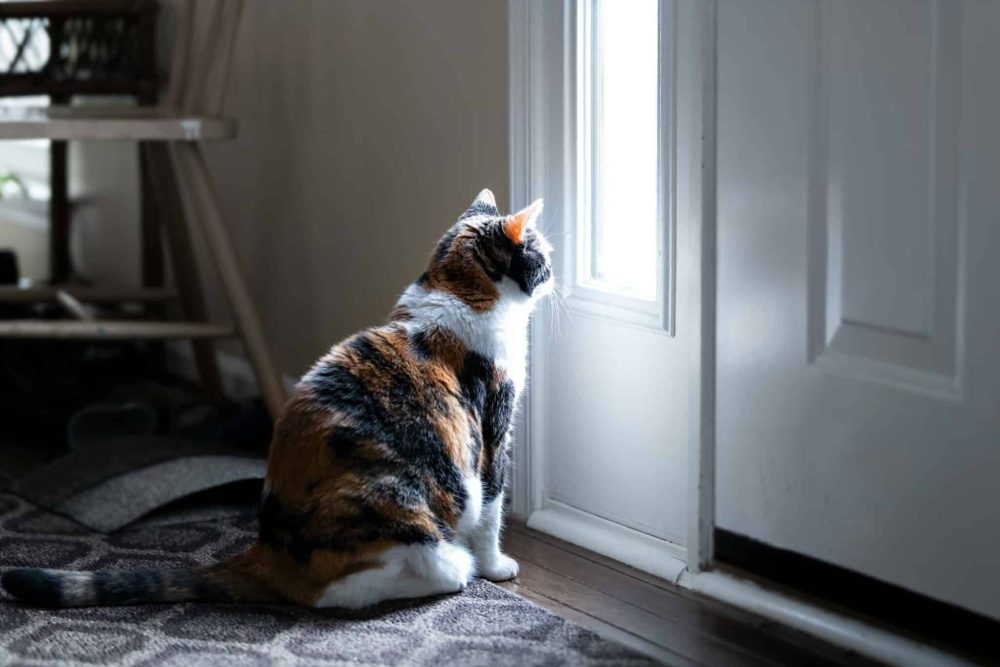

Will a Surrendered Cat Ever Acclimate to a New Home?
If a cat is experiencing grief because they have been rehomed or their surroundings have otherwise changed, you might wonder how long it will take them to adjust. If you brought them home and they just seem to be down in the dumps, give them a few days to a few weeks.
Cats can take a different amount of time to warm up. It will depend on a lot of factors like how comfortable they are in the new home, how close they were with their previous owner, how well they acclimate to change, and the list goes on.
Conclusion
So now you understand a little bit more about the way that cats grieve. Just like with anything else, the individual reaction isn’t very predictable until it happens. Cats will have all different ways of showing grief, and some might not experience it when you expect they would.
Regardless, if your kitty is having trouble adjusting to a life without a friend they were used to, you can make them feel more comfortable while they process and take them to a vet if it is starting to negatively affect their health.
Featured Image Credit: Kristi Blokhin, Shutterstock
Credit : Source Post









